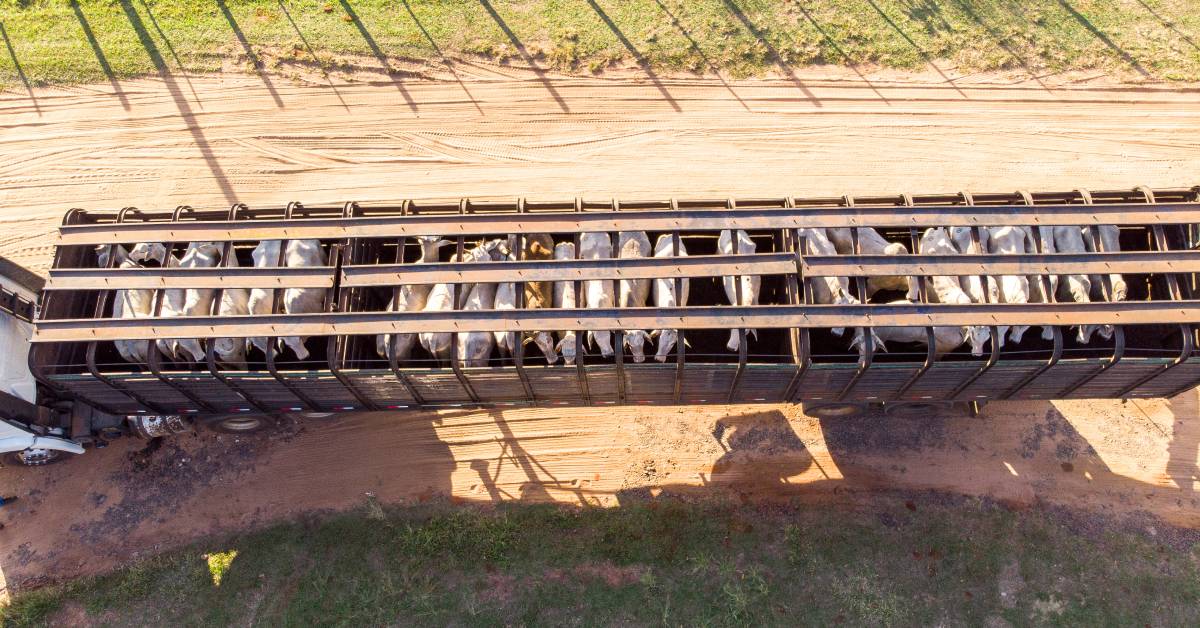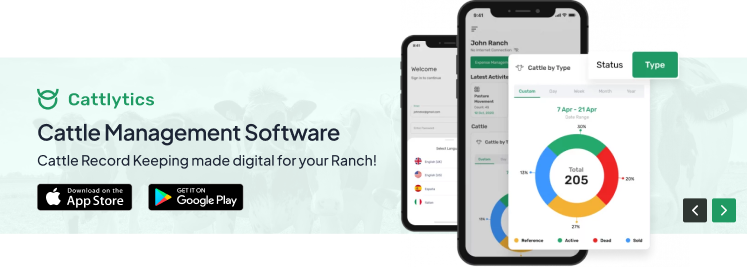The meat industry is one of the highly regulated industries in the USA. Various pathogens that may stem from meat contamination may harm humans. The outbreak of the COVID-19 pandemic, which started in the meat market, is a potent reminder of the potential risks associated with consuming contaminated meat.
Most health risks associated with meat consumption stem from the conditions in which animals are kept. Also, any potential negligence during the supply chain or meat storage may contaminate the meat. It is one reason why there is a growing concern among regulators and the general public about the quality and safety of meat and meat-based products. However, meat suppliers and manufacturers of meat-based products may find it hard to comply with the stringent regulations when the market is also becoming more competitive.
These factors make the businesses associated with the meat industry strive to keep up with regulatory compliance, which is often too complex and intricate to keep up with. Without adequate systems and processes, the situation may lead businesses to suffer inefficient production and missed targets.
In this article, we will try to understand the complexity of regulatory compliance in the meat industry and how ERP software for meat processors can help in tackling these challenges.
Meat Processing Software and Its Benefits
Meat processing software is used by businesses involved in meat production and processing. The software offers several features and benefits that improve operational efficiency. Integrating cutting-edge technology with existing processes makes this software a crucial asset, helping businesses save time and money while enhancing productivity.
Meat processing software significantly simplifies the life of a meat processor by introducing efficiency, accuracy, and convenience into their daily operations. The software offers several key advantages:
Streamlined & Efficient Operations
Meat processing involves intricate tasks, from order tracking to inventory management. Beef processing software streamlines these processes, reducing the time and effort required for manual tracking systems. This efficiency translates to a smoother workflow, allowing processors to focus on their core business.
Reduced Manual Errors
Human errors in order management and stock tracking can be costly and time-consuming. Beef processing software minimizes these errors by automating tasks, ensuring the proper steps are taken correctly. It saves time and contributes to the overall accuracy of operations.
Time Savings
Automation facilitated by the software speeds up various tasks such as ordering, restocking, and cost estimation. With all relevant information consolidated in one accessible place, processors can make quicker decisions, ultimately saving time and increasing overall productivity.
Compliance with Regulations
The software ensures that meat processors comply with food safety regulations. It provides accurate record-keeping features, making it easier to track product sales and adhere to health and safety standards. It streamlines compliance efforts and reduces the risk of regulatory issues.
Understanding the Complexity of Regulatory Compliance in the Meat Industry
To address consumers’ growing concern about the origin and traceability of meat, regulators constantly revise the regulations to keep up. However, they also face the challenge of understanding the industry’s woes and ensuring transparency. In this regard, regulators often take cues and learn from new problems the industry faces. The outbreak of the COVID-19 pandemic in the Chinese meat market reinforced the importance of stringent regulations to ensure the safety and quality of meat production.
Businesses must also keep up with the quality and reliability of their products to build brand recognition and improve customer loyalty. Recalling a product/batch may utterly destroy the business’s reputation in the future since it not only spreads panic about the brand’s quality, leading to massive financial loss, but also strict administrative penalties.
The primary regulatory bodies are the United States Department of Agriculture (USDA) and the U.S. Food and Drug Administration (FDA). They collaborate to ensure the safety, quality, and integrity of meat products from slaughter to processing.
The Federal Meat Inspection Act is federal legislation that guides meat processing in the United States. It grants the USDA-FSIS authority to continuously inspect livestock processing. The Act imposes stringent requirements on good manufacturing practices (cGMPs), sanitation, labeling, and adherence to humane slaughter standards. Similarly, the Poultry Products Inspection Act regulates poultry processing and ensures continuous inspection and oversight with similar standards.
Some of the various regulatory measures that must be complied with by meat processors in the USA to ensure the safety and quality of meat or meat-based products include:
- Good manufacturing practices (cGMPs)
- Food & Drug Administration (FDA)
- Food Safety Modernization Act (FSMA); and
- Hazard Analysis and Critical Control Points (HACCP)
In addition to federal and state regulations, voluntary standards and certifications are in the meat industry. These include programs such as Certified Humane, American Grassfed, and Global Animameat products partnership.
What is ERP Compliance?
ERP compliance enables businesses to record and account for all mandatory regulatory requirements. For the meat industry, ERP compliance ensures that the meat processors can keep up with the batches’ traceability and ensure quality control of the products throughout the manufacturing cycle from production to packaging, storage, and supply chain.
With a standard and comprehensive ERP system integrated into the business processes and operations, meat processors can ensure compliance with all relevant local, state, national, and international regulations. ERP software can also help businesses generate ingredient statements, supplement fact sheets, nutritional labels, and other mandatory reports for the FDA and other concerned authorities. Thus contributing to the overall safety and quality of meat production for consumers.
How Does the ERP System Empower Your Business?
Enterprise Resource Planning (ERP) systems represent business management platforms that enable companies to maximize their productivity and efficiency based on the suite of automated, integrated applications. ERP software automates various business functions and streamlines workflow processes to create agile, leaner, and efficient operations. Simply put, the ERP system acts as the brain for companies, enabling them to achieve more out of limited resources.
What Type of Meat Processors Need ERP Software?
Enterprise Resource Planning (ERP) software is a valuable asset for a wide range of meat processors. It addresses the distinct operational requirements of various types within the industry.
1. Large-Scale Meat Processing Plants:
Companies with extensive operations and diverse product lines cannot run their business effectively without ERP software. It helps manage everything from raw material procurement, production planning and scheduling, inventory management, quality control, and compliance to financial reporting.
2. Meat Co-ops and Collective Processing Facilities:
Facilities operating collaboratively, such as meat co-ops, benefit from ERP solutions by centralizing operations and improving visibility. It benefits co-packers managing multiple product lines, addressing specific labeling requirements, and customizing packaging according to diverse needs.
3. Value-Added Meat Processors:
Meat processors handling specialty products such as value-added cuts, marinated meats, or unique recipes can use ERP software for production planning, personalized labeling, and order fulfillment. The software empowers processors to effectively respond to the ever-changing demands of the meat industry.
4. Export-Oriented Meat Processors:
ERP software is designed explicitly for processors targeting export markets. It is a powerful tool for managing diverse customer requirements and compliance standards. ERP software facilitates successful penetration into global markets by playing a crucial role in maintaining quality control and ensuring adherence to international standards. It is an essential asset for businesses aiming to expand their reach and achieve global success.
5. Retail-Ready Meat Processors:
ERP software benefits processors supplying retail-ready meat products with unique packaging and labeling needs. The software manages packaging operations, tracks expiration dates, and ensures compliance with labeling requirements. It is a valuable tool for maintaining product quality and meeting the specific demands of the retail sector.
Stay Rooted, Grow Informed:
Benefits of Using ERP Software for Meat Processors
Enterprise Resource Planning (ERP) is business continuity software that enables businesses to streamline operational and administrative processes and automate various functions. ERP also enables companies to meet regulatory compliance obligations by designing seamless workflow processes and ensuring transparency across all business operations.
Some of the potential benefits of ERP software for meat processors include:
1. Traceability:
By integrating a robust ERP system into processes, businesses can ensure greater transparency across all functions. This system also enables companies to improve traceability throughout the supply chain process, thus guaranteeing customers the quality and safety of the products by offering them transparency into the origin of the meat.
2. Quality Control (QC) and Safety Standards:
The growing demand for robust ERP systems for quality control measures has led to the development of specialized ERP software for the meat industry. These platforms bring customized solutions for businesses to put strict measures in place to ensure the quality of the products and keep up with regulations. With the right ERP system in place, companies can ensure
- Automated monitoring of meat processing operations
- Automated management of storage conditions (temperature, refrigeration)
- Setting up best practices for hygiene and packaging
- Detailed storage documentation
3. Prevent Spoilage:
The ERP system enables businesses to trace the date and status of meat production. This information is vital for automating the supply and movement of meat products and tracking fresh, frozen, or spoiled products.
4. Track Batch Information:
Specialized ERP software for meat processors also enables them to track the batch numbers for manufactured products. It allows them to keep track of entire batches rather than individual products for quality and safety assurance. By tracking the batch information, the meat industry can ensure the consistency of entire batches and prevent any spoiled batch from hitting the market.
5. Respond to Recalls:
Taking from the above, since ERP systems enable manufacturers to keep up with all the relevant information of product batches, it’s easier for them to respond to any adverse event where recall is required. That’s because all the relevant information is readily available in the ERP system with batch dates and supplied places, thus making it easy to recall any batch when necessary.
6. Comply With USDA and Other Food Regulations:
As mentioned earlier, the meat industry is among the most regulated industries in the USA, with various complex regulations controlling the quality and safety of the products. Robust and specialized ERP software for meat processors makes it easier for them to comply with multiple rules and avoid liability for non-compliance.
7. Automatically Move Received Products:
ERP software for meat processors may also assist in automating product inventory, thus saving time and labor.
8. Deliver the Product on Time:
While time is crucial for all industries, it becomes even more significant for meat processors since any delays in operations, packaging, or supply chain may lead to product spoilage. With an ERP system integrated into workflow processes, meat processors can keep track of the precise manufacturing date for any batch and communicate the same to customers. Also, by automating the various workflow processes involved in the production and processing of meat, businesses can improve operational efficiency, thus resulting in the timely delivery of fresh products in the market.
9. Handle Promotional Offers:
ERP software for meat processors also offers features to launch and manage promotional offers. It may include discounts or promotional offers to customers that meet certain conditions. An ERP system can integrate all these promos and discount offers with the business’s central accounting system to keep accurate company account books.
10. Real-Time Overview of Business:
With robust ERP software integrated into the system and processes, meat processors can access real-time updates on the performance of various business functions. This ensures that business leaders know the performance of different operations and make timely decisions whenever required.
11. Smooth Business Processes:
By automatically integrating various business functions, the ERP system makes it easier and more convenient for meat processors to streamline data management. It also helps minimize errors associated with manual data entry while increasing the process’s efficiency.
12. Reduce the Amount of Software and Integrate Them:
ERP software for the meat industry is a unified system for gathering, processing, and analyzing all business functions. By integrating a specialized meat ERP system, meat processors don’t have to rely on different software to manage various business functions like accounting, inventory management, supply chain management, etc. This results in more streamlined operations and processes, increasing business efficiency and productivity.
Integrating Meat Processing Software With Existing Systems
With the right approach and modern technology, integrating new software into your existing system can be straightforward. The first step is selecting meat processing software tailored to your business needs, focusing on features like inventory management, quality control, traceability, and industry compliance.
To ensure seamless compatibility with your current systems, evaluate integration options such as API, FTP, EDI, and web services. A technical expert needs to be involved to complete this process smoothly.
Plan the integration carefully to minimize disruptions to your business operations. Develop a detailed plan that outlines specific tasks, timelines, and necessary resources. Keep all relevant stakeholders informed about potential changes and updates.
Execute the integration plan and conduct thorough testing before full implementation to promptly identify and address any issues. Lastly, train your employees on using the new software effectively. Take advantage of customer support and training resources provided by most software solutions to ensure a smooth transition for your team.
Conclusion
Meeting regulatory compliance, especially in the USA’s diverse regulatory landscape, is a significant challenge for businesses operating in the meat industry. However, integrating ERP software into the current operation proves invaluable, offering streamlined operations, reducing errors, and ensuring compliance with regulations. ERP software caters to various meat processors, facilitating traceability, quality control, and timely recall responses. Modern technology can empower businesses by providing real-time insights, streamlining processes, and enhancing overall efficiency in the dynamic meat industry.
FAQs
Why is ERP Important in the Food Industry?
Erp software helps food industry companies manage and streamline their tasks. It simplifies stock management and improves the business’ traceability and compliance.
What is ERP, and How Does ERP Work in the Meat Industry?
ERP is Enterprise Resource Planning software used in the meat industry to manage operations more efficiently. It helps meat processors plan and forecast demand and ensure the safety and quality of meat products.
What are the New technologies in Meat Processing?
Several emerging technologies are in the meat processing industry. Some of them are automation and robotics, AI in quality control, smart sensors and IoT, and high-pressure processing.
What is Meat Processing Software?
It is a software type that streamlines and optimizes various aspects of meat processing operations. Critical features of meat processing software include inventory management, traceability and compliance, and quality control.







